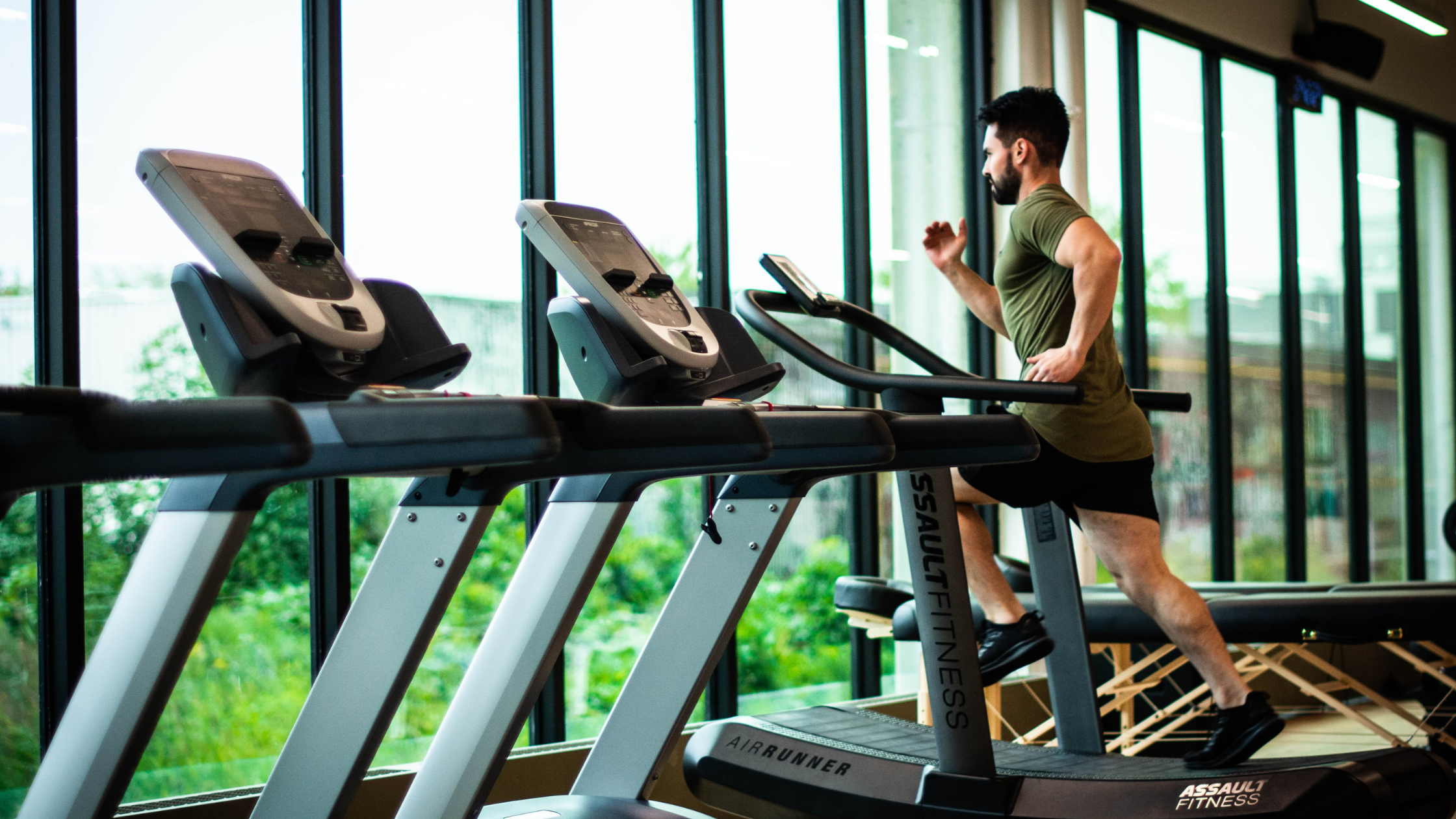You’re Successful—But Your Energy Doesn’t Always Show It
As a business owner, executive, senior leader, or top performer, your life moves fast. You’re managing teams, making high-stakes decisions, and navigating complex personal and professional responsibilities. You’ve likely mastered your craft and built financial success—but here’s the paradox:
You’re drained.
Your mornings may start strong, but by early afternoon your brain feels foggy. You hit meetings at 60% capacity, reach for your fourth coffee by 3 PM, and grind through the rest of the day like a car running on fumes. By the time you get home to your partner and kids, you feel like you’re no use to them.
And in the quiet moments… you wonder: Shouldn’t I have figured this out by now?

A High Performance, High Quality Life Won’t Survive Low Energy
Let’s be clear—this isn’t about laziness or lack of willpower. It’s about systems failure.
Your body and mind were not designed to sustain peak output without the right input.
Here’s what’s really happening:
You’re skipping or eating the wrong breakfast, spiking blood sugar mid-morning, and crashing before lunch.
- You’re spending the day in cognitive overdrive, with no recovery windows.
- You’re dehydrated and undernourished, relying on caffeine and sugar for energy.
- You’re working against your natural energy rhythms—fighting biology instead of using it.
This has a cost:
Poor decision-making. Missed opportunities due to mental fog. Shorter fuse with your team and loved ones. Reduced output despite more effort.
And the biggest risk? Burnout disguised as “success.”
Others think you look the part, but inside you’re barely holding it together.
That ends here.

A High-Performer’s Blueprint for All-Day Energy and Focus
Sustained energy isn’t random—it’s built.
Below is a step-by-step system designed for your world: high stress, high output, and no room for guesswork. These aren’t hacks. They’re habits that compound into clarity and consistency.
Let’s build your edge—starting from the moment you wake up.
1. Win the First 90 Minutes of the Day
Your first decisions shape your entire day. Treat the morning like a runway, not a race.
What to do:
Aim to wake up at around the same time every day to get your body into a routine.
Hydrate immediately: 500ml+ of water with a pinch of salt or electrolytes.
Eat a high-protein, slow-release carb breakfast (e.g., porridge with whey protein + berries).
Get natural light exposure as soon as you can—ideally, 10 minutes outdoors paired with a walk.
Get your steps in before work—ideally paired with natural light.
Avoid screens and emails for the first 30–60 minutes.
Why it works:
Hydration jumpstarts your metabolism and cognitive function. Natural light regulates your circadian rhythm and sets your body clock for optimal sleep later. And a quality breakfast provides steady energy—no mid-morning crashes. A morning walk gets the blood flowing and gives you a chance to relfect on the day ahead.
Example:
One of my clients who runs a busy media business, used to skip breakfast and rely on flat whites and chocolate until noon. We added a 10-minute walk and a protein and slow-release carb-packed breakfast. Within a week, his morning energy doubled—and so did his output.
2. Use Time Blocks, Not To-Do Lists
To-do lists are endless. Your energy isn’t.
What to do:
Block your day into 90–120 minute focus zones.
Schedule deep work early—your most cognitively demanding tasks should happen before 1 PM.
Cluster meetings into the afternoon (where possible).
Add 15-minute “recovery” breaks between blocks (stretch, walk outside, deep breathing—not Instagram).
Why it works:
Your brain works in cycles of peak attention and natural fatigue. Trying to push through without rhythm creates diminishing returns. Strategic breaks allows your mind to reset and stay sharp all day.
Example:
An executive I coach started time-blocking 90-minute deep work sessions before his 11 AM strategy meeting. The result? He finished high-priority work before lunchtime and stopped taking it home.
3. Fuel Like a Pro, Not Like a Teenager
Food is not just fuel—it’s focus.
What you eat determines your brain’s ability to process, remember, and decide.
What to do:
Eat well-balanced meals–1x protein source, 1x slow-release carb source, 1x fruit/veg source and 1x healthy fat source.
Protein options include eggs, fish, lean meat, and Greek yoghurt.
Replace refined carbs with slow-release alternatives like oats, quinoa, sweet potato, wholemeal bread, brown pasta, beans and lentils.
Hit 20–30g of fibre daily for stable blood sugar and gut health.
Avoid ultra-processed convenience foods.
Limit caffeine after 1 PM (switch to water, herbal tea, or decaf).
Why it works:
Stable blood sugar = stable energy. In order to achieve this, you must focus on prioriting complex carbs which are slow release as well as eating well-balanced meals which also support steady energy.
Example:
A tech founder I worked with replaced his pastry-and-coffee combo with a protein smoothie and switched lunch from pasta to salmon with vegetables and rice. His 2 PM slump disappeared within three days.
4. Move Strategically, Not Sporadically
It may seem like a paradox: move more and you’ll have more energy. But, it’s true.
Also, exercise isn’t just physical—it’s cognitive.Movement boosts mood and mental performance.
What to do:
Aim for 30–45 minutes of low to medium intensity movement most days (lifting, running, walking, cycling).
Walk after meals to improve digestion and stabilise blood sugar.
Use walking calls or meetings whenever possible.
Include one session per week that challenges you—e.g., HIIT, boxing, or a long run.
Why it works:
Movement increases oxygen to the brain and triggers endorphins, enhancing focus, learning, and emotional control. When you’re sedentary, you do the opposite.
Example:
A senior partner at a law firm started taking walking meetings and replaced doom-scrolling with a 30-minute gym session. He reported feeling “10 years younger” in just six weeks.
5. Use Supplements to Fill (Not Replace) Gaps
Your nutrition should do the heavy lifting. But smart supplementation can support focus and resilience.
What to consider:
Magnesium glycinate (200–400mg): supports sleep and recovery
Omega-3 (EPA/DHA): reduces inflammation, improves cognition
Vitamin D3: especially important in UK winters and recommended by the NHS
Creatine monohydrate: boosts brain and muscular energy
Why it works:
Supplements address common deficiencies that silently erode energy and performance. They’re not magic pills—but they’re smart insurance that compliment a good diet.
6. Protect Sleep Like Your Life Depends On It (Because It Does)
Sleep isn’t a passive state—it’s your life performance enhancer. Poor sleep will impact almost every aspect of your life from happiness to work to relationships.
What to do:
Aim for 6.5–8 hours of consistent, high-quality sleep.
Wind down with a 30-minute pre-bed routine (no screens, dim lights, reading or journaling).
Avoid heavy meals, alcohol, and intense work 2 hours before bed.
Use a sleep tracker (like Garmin, Oura or WHOOP) to audit and improve your sleep quality.
Consider magnesium to aid falling asleep.
Why it works:
Sleep is when your brain consolidates memory, repairs stress, and resets emotional balance. Without it, even the best productivity strategies crumble.
Example:
One CEO I worked with wore poor sleep like a badge of honour—until we ran a 30-day sleep audit. With a new routine and better boundaries, his mood, energy, and team leadership improved significantly.
7. Create a Performance-Driven Environment
You are not just a product of willpower—you’re a product of your environment.
What to do:
Declutter your workspace—fewer distractions = faster execution.
Keep water within arm’s reach at all times.
Use focus tools: noise-cancelling headphones, ambient playlists, site blockers.
Make your phone hard to reach during deep work blocks.
Surround yourself with high performers—online or offline.
Why it works:
Energy leaks don’t always look like burnout. Sometimes, they look like distractions, inefficiencies, and low standards. Build your environment to make high performance the default.
Final Thought
Energy Is Your Ultimate Competitive Advantage For Sustainable Success & A Great Quality Of Life
You’re at the top of your game—your achievements speak for themselves—but high performance will only go so far if your energy and focus aren’t up to par. Likewise, to get the most out of life and relationships, you need sustained energy!
What you were lacking was a system that helps you maintain optimal energy throughout the day. Now, you have a set of interconnected strategies that work together to keep you feeling energetic throughout the day. By getting movement, nutrition, time management, sleep, supplements and environment working together, you will be able to –
Feel ready to take on the biggest challenges
Make faster, better decisions
Lead with clarity and composure
Show up fully—for your business, team, and family
Remember, it starts with small, consistent upgrades. Gradually start to dial these in, and you quickly start to feel a difference!
Good luck!


